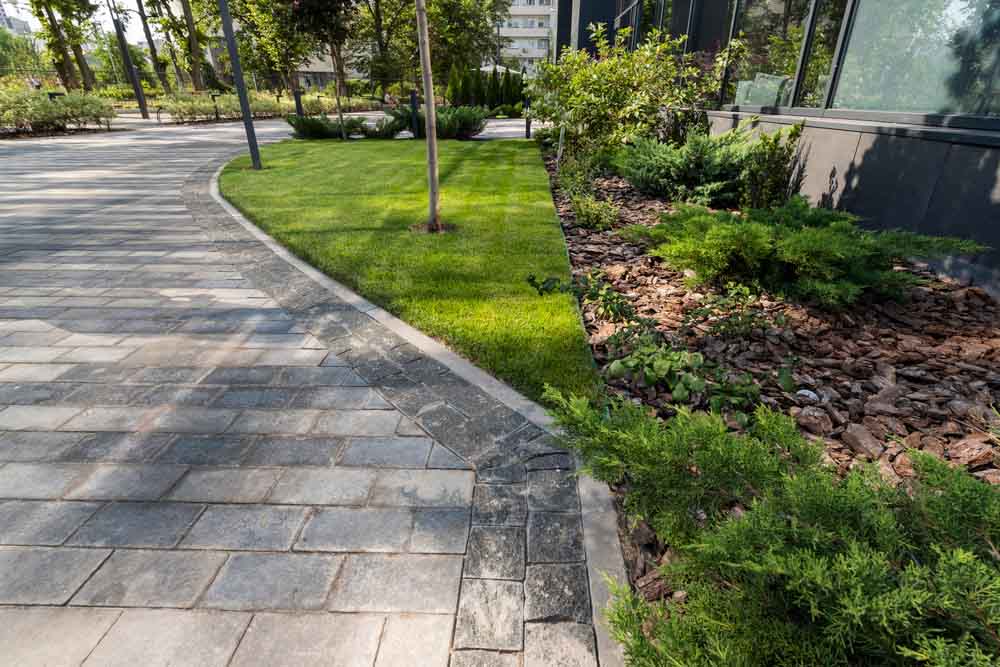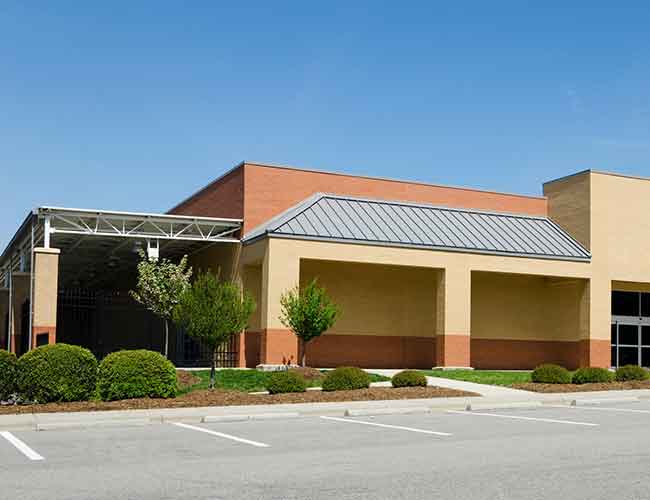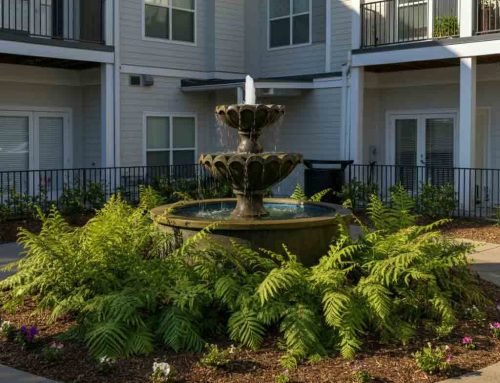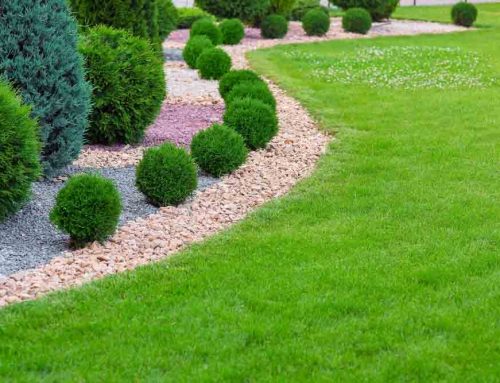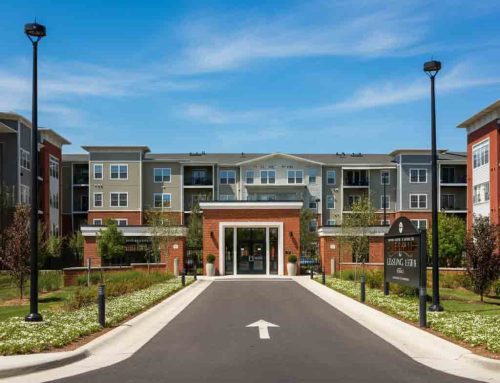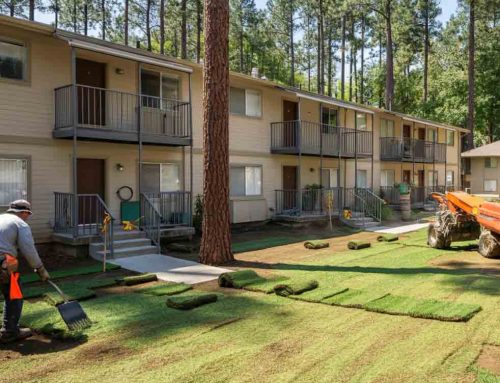Pugh’s Earthworks
Creating and maintaining beautiful, eco-friendly landscapes for institutions like schools, universities, and hospitals is more than just an aesthetic choice. It is a commitment to sustainability, community well-being, and overall environmental stewardship. In this blog post, we explore how Commercial Landscaping for Institutions can elevate these spaces, providing practical tips and strategies for sustainable grounds management that benefit everyone involved.
Why Commercial Landscaping for Institutions Matters
Commercial landscaping for institutions is vital to creating welcoming, functional environments that support the well-being of students, staff, and visitors. Whether it is the calming greens of a hospital garden, the vibrant grounds of a university campus, or the inviting play areas of a school, the right landscaping can transform these spaces into thriving havens.
The Benefits of Institutional Landscaping
- Enhancing Aesthetic Appeal – A visually appealing landscape can significantly uplift the atmosphere of an institution. Beautifully maintained grounds create a positive first impression, making schools, universities, and hospitals more inviting and inspiring.
- Promoting Health and Well-being – Green spaces are known to reduce stress and promote mental well-being. For hospitals, this means faster recovery rates and a more pleasant environment for patients and staff. Schools and universities benefit from outdoor areas that encourage relaxation and physical activity, enhancing overall well-being.
- Boosting Environmental Sustainability – Eco-friendly landscaping practices, such as using native plants and water-efficient irrigation systems, contribute to environmental conservation. Sustainable grounds management reduces the carbon footprint and promotes biodiversity, aligning with the growing emphasis on green initiatives.
Key Elements of Effective Institutional Landscaping
- Choosing the Right Plants – Selecting the appropriate plants is crucial for successful institutional landscaping. Native plants are often the best choice as they require less water, are easier to maintain, and support local wildlife. Additionally, incorporating a mix of perennials and annuals ensures year-round beauty and interest.
- Implementing Water-Efficient Practices – Water conservation is a critical aspect of sustainable landscaping. Drip irrigation systems, rainwater harvesting, and drought-tolerant plants are effective strategies to reduce water usage while maintaining lush, healthy grounds.
- Enhancing Soil Health – Healthy soil is the foundation of any thriving landscape. Regular soil testing, organic fertilizers, and composting help maintain nutrient-rich soil, promoting robust plant growth and reducing the need for chemical treatments.
- Creating Safe and Accessible Spaces – Ensuring Accessibility
- Institutions must prioritize accessibility in their landscaping designs. This includes creating pathways that are wheelchair-friendly, providing adequate lighting, and ensuring that all areas are easily navigable for individuals with disabilities.
- Incorporating Safety Features – Safety is paramount in institutional landscaping. This involves selecting non-toxic plants, maintaining clear sightlines for security, and installing features like non-slip surfaces and shaded areas to protect against harsh weather conditions.
- Providing Comfortable Seating Areas – Comfortable seating areas encourage people to spend time outdoors. Benches, picnic tables, and shaded spots create inviting spaces for relaxation, socialization, and outdoor learning.
Leveraging Technology in Commercial Landscaping for Institutions
- Smart Irrigation Systems – Smart irrigation systems use weather data and soil moisture levels to optimize watering schedules. This not only conserves water but also ensures that plants receive the right amount of hydration at the right time.
- Landscape Design Software – Advanced design software allows landscapers to create detailed, accurate plans that can be easily adjusted. This technology helps visualize the final product, making it easier to plan and execute complex landscaping projects.
- Eco-Friendly Maintenance Equipment – Using electric or battery-powered maintenance equipment reduces emissions and noise pollution. These tools are essential for institutions committed to eco-friendly practices and creating a peaceful environment.
Engaging the Community
- Educational Programs – Institutions can use their landscaped areas as educational tools. Schools and universities can incorporate gardening programs and outdoor classrooms, while hospitals can offer therapeutic gardening activities for patients.
- Volunteer Opportunities – Engaging the community through volunteer gardening days fosters a sense of ownership and pride in the landscape. It also provides hands-on learning opportunities and strengthens community bonds.
- Celebrating Achievements – Recognizing and celebrating milestones in the landscaping project, such as the completion of a new garden or the adoption of sustainable practices, helps maintain enthusiasm and support from the community.
Addressing Challenges in Institutional Landscaping
- Budget Constraints – Budget is often a significant challenge for institutions. Prioritizing essential elements, seeking grants, and partnering with local businesses can help manage costs without compromising on quality.
- Ongoing Maintenance – Sustainable landscapes require regular maintenance to stay healthy and attractive. Implementing a comprehensive maintenance plan that includes seasonal tasks and routine checks ensures that the landscape remains in top condition.
- Climate Considerations – Different regions have varying climate challenges that impact landscaping. Understanding local weather patterns and selecting climate-appropriate plants help create resilient landscapes that thrive in their specific environments.
Case Studies of Successful Institutional Landscaping
- Schools Commercial Landscaping – Many schools have successfully transformed their grounds into engaging outdoor spaces. Many schools have implemented a garden program that integrates science and environmental education, providing students with hands-on learning experiences.
- Universities Commercial Landscaping – Universities have embraced sustainable landscaping by creating eco-friendly campuses. Their use of native plants, rain gardens, and green roofs not only enhances the campus’s aesthetic appeal but also supports environmental conservation.
- Hospital Commercial Landscaping – Hospitals have recognized the therapeutic benefits of well-designed landscapes. Their healing gardens offer patients and staff a peaceful retreat, promoting relaxation and faster recovery.
Tips for Getting Started with Institutional Landscaping
- Assessing Current Landscapes – Begin by evaluating the existing landscape. Identify areas that need improvement and consider the needs and preferences of the institution’s community.
- Setting Clear Goals – Define the goals of the landscaping project. Whether it is enhancing aesthetic appeal, promoting sustainability, or creating functional outdoor spaces, having clear objectives guides the planning and execution process.
- Partnering with Experts – Collaborate with professional landscapers who specialize in institutional projects. Their expertise ensures that the design is practical, sustainable, and aligned with the institution’s vision.
Future Trends in Institutional Landscaping
- Green Infrastructure – Green infrastructure, such as green roofs and walls, is becoming increasingly popular in institutional landscaping. These features not only improve aesthetics but also enhance energy efficiency and stormwater management.
- Biodiversity Corridors – Creating biodiversity corridors that connect fragmented habitats supports local wildlife and promotes ecological balance. Institutions can play a vital role in urban conservation efforts by integrating these corridors into their landscapes.
- Technology Integration – The future of landscaping will likely see further integration of technology. Innovations such as AI-driven maintenance systems and drone-assisted surveys will make landscaping more efficient and precise.
Conclusion
Commercial landscaping for institutions like schools, universities, and hospitals is a multifaceted endeavor that combines aesthetics, sustainability, and community engagement. By adopting eco-friendly practices and leveraging technology, institutions can create beautiful, functional landscapes that enrich the lives of students, staff, and visitors.
If you are ready to transform your institution’s landscape, consider partnering with experts who can guide you through the process. Together, we can create sustainable, welcoming spaces that make a lasting impact.
For personalized advice and professional landscaping services, Pugh’s Earthworks Commercial Landscaping today. Let us work together to bring your vision to life and make your institution a beacon of beauty and sustainability.
Pugh’s Earthworks Commercial Landscaping for Institutions
This broad sector of properties includes churches, hospitals, country clubs, colleges and government branches. Of the many Memphis commercial properties, we have been proud to service for a decade or more, a large number of them are institutional facilities.
The key to our longevity: developing strong relationships, evolving with our clients’ changing needs and helping them to continue to grow the value of the commercial properties they own, manage and occupy. We provide landscape design and installation services, commercial landscape maintenance services and water management services for these institutional facilities to ensure they’re running at peak performance at all times.
Pugh’s Earthworks is a large landscape and lawn maintenance firm. We own and operate 5 landscape offices, located in Tennessee, Mississippi and Arkansas. Our firm has the precise equipment and personnel needed to deliver professional grounds maintenance services for all types of commercial customers. If you are seeking a professional firm to handle a landscape of lawn maintenance project, we encourage you to give us a call. We do offer FREE consultations and provide price estimates upon request.
We offer year-round maintenance of all grounds. That affordably priced program offers both landscape and lawn maintenance services. All work will be done by our certified professionals. These folks have been working on commercial properties for years and use great care and attention to detail. Pest Control, inside and out, can also be handled by Pugh’s Earthworks for hassle free property management.
If you are looking for a reliable commercial lawn care service, contact us today! We offer free estimates on all of our services and are always happy to answer any questions you may have about how we can help your business succeed. Pugh’s Earthworks is a full-service landscaping and lawn care company that offers commercial lawn maintenance services for businesses, commercial properties and residential properties. We offer a wide range of services to help you maintain your property. We can provide everything from seasonal mowing to full landscape design services or irrigation system installation.
Pugh’s Earthworks Industrial Landscaping
Pugh’s Earthworks
Memphis Headquarters
Phone: (866) 207-4734

